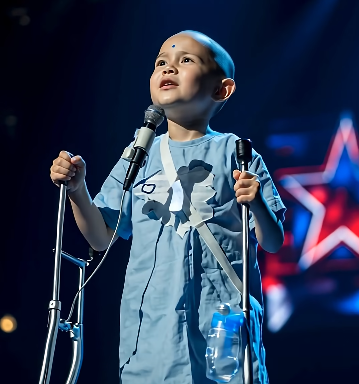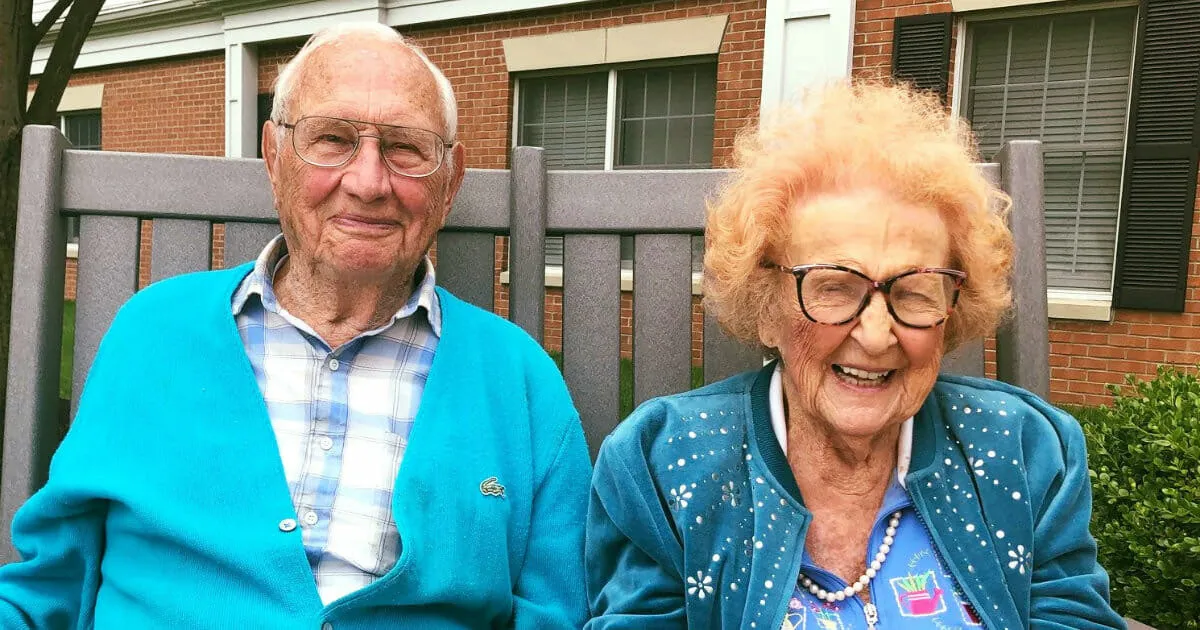The America’s Got Talent stage has seen its fair share of unforgettable performances—but few have ever felt as deeply human as this one.
Under the soft glow of the stage lights, a little girl emerged slowly, balancing carefully on metal crutches. Her tiny steps echoed louder than applause. Each movement was deliberate, heavy with effort. But what struck everyone wasn’t her condition—it was her determination. Her strength didn’t come from her legs, but from something far deeper: a spirit that refused to be quiet.
Dressed in a simple medical gown, hospital tags still dangling, she looked up at the audience with wide, hopeful eyes. Her head was shaved—likely from ongoing treatment—but her face held an expression of joy, not fear. In that moment, you could feel it: this was more than just a performance. It was a testimony.

As she reached the microphone, the room fell into reverent silence.
And then—she sang.
The first note was fragile, but full of life. And with each verse, her voice grew—carried not by volume, but by truth. It wasn’t just music. It was bravery turned into melody. Pain transformed into poetry. And the sound of it moved the room to tears.
There was something hauntingly beautiful about how she stood. Though her body trembled, her voice stood tall. Though the journey to the mic was long, her message arrived instantly: “I am still here. I still dream. I still sing.”
She didn’t ask for pity—she offered hope.
The lyrics she chose were raw, almost too honest for a child. But in her voice, they made sense. She sang of rising when it’s hard to stand. Of fighting when you’re too tired to breathe. Of shining light even when you’re surrounded by shadows. Her voice cracked not from weakness, but from the overwhelming emotion that filled each word.
The judges were visibly shaken. Their eyes welled with tears. One whispered “wow” under their breath. Another simply held their hand to their heart, overcome by the power of what they were witnessing.
When she finished, there was no dramatic bow. No theatrical exit. Just a shy smile. A quiet “thank you.” And one final look at the crowd—as if to say, “I did it.”
But she didn’t just perform.
She reminded everyone what it means to be brave.
to be brave.
To stand in front of the world and share your truth—even when that truth is wrapped in tubes and scars and soft blue gowns.
To sing not despite your pain, but because of it.
In a world too often focused on perfection, this little girl showed us the beauty of imperfection. The grace in grit. The music in survival.
And in doing so, she didn’t just earn applause.
She became a voice for every child who’s ever felt small—and made them believe they could sing, too.



